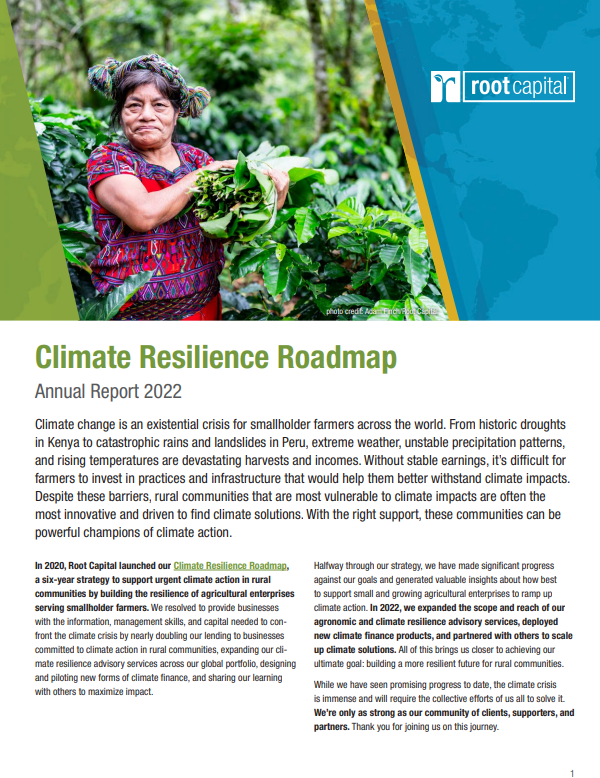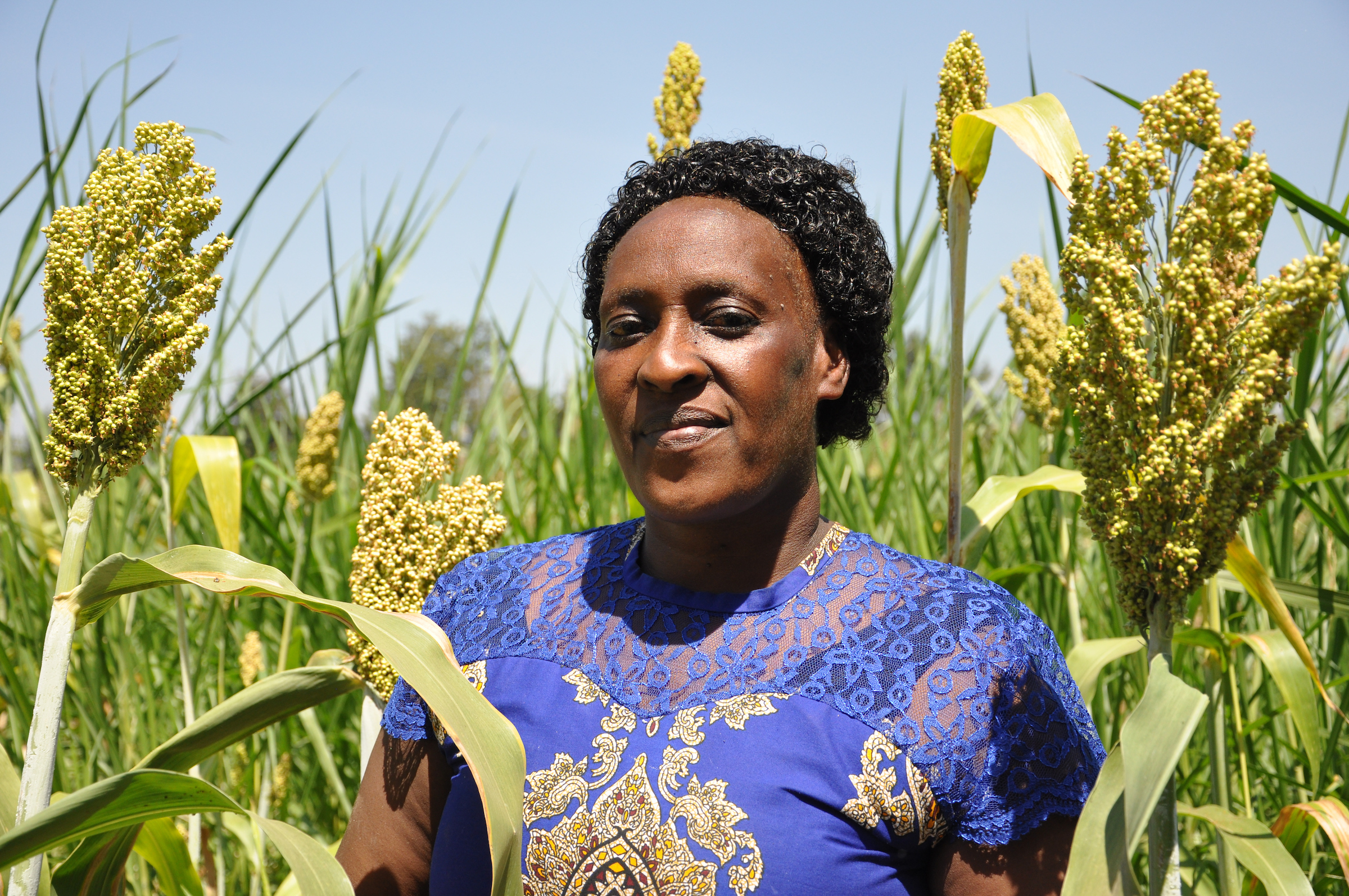
Deep in the Meru region of Kenya, Shalem Investments has witnessed firsthand the effects of shifting weather patterns and climate change on its community. Much of Kenya is experiencing the worst drought in 40 years, with devastating consequences for farmers of “thirsty” crops like maize. As a grain aggregator and climate action leader, Shalem is building a local market for the more climate-ready, drought-tolerant sorghum crops and providing grains for the World Food Programme’s drought relief efforts in the larger Horn of Africa region. Thanks in part to financing from Root Capital over the last decade, Shalem has grown its business and impact, increasing the number of farmers it supports from around 2,000 to 30,000. Using a grant from Root Capital, Shalem also expanded training on sustainable agricultural practices for farmers, who struggled for years with low crop yields due to unpredictable rains and growing seasons.
It’s with clients like Shalem Investments in mind that Root Capital launched our Climate Resilience Roadmap in 2020. Our overarching goal was to foster clients’ resilience by equipping them with the tools needed to confront the climate crisis. The Climate Resilience Roadmap describes how we plan to scale our own climate financing to businesses committed to climate action in rural communities, like Shalem Investments; expand our climate resilience advisory services across our global portfolio; design and pilot new forms of climate finance; and share learnings with others to maximize impact.
In honor of Earth Day, we’re releasing the 2022 Annual Report for our Climate Resilience Roadmap describing key activities and accomplishments from the past year. Halfway through our six-year climate action strategy, we’re currently on track to achieve (and surpass) our goals, having:
- Financed 114 climate action leaders annually (91% of goal of 125 annually by 2025);
- Disbursed $98.8M in climate finance annually (93% of goal of $105M annually by 2025);
- Provided 116 businesses with agronomic and climate advisory services (70% of goal of 125 by 2025); and
- Reached 472,000 farmers and employees via our climate finance or advisory services (94% of 500,000 goal by 2025).
And most importantly, our work is translating into impact for our clients and farmers.
With Root Capital’s support, agricultural businesses are implementing new climate adaptation plans with farmers and investing in clean energy and regenerative farming practices-from solar panels in Kenya to organic fertilizers in Nicaragua.
A special thank you to IKEA Foundation, Keurig Dr Pepper, Inc., Trafigura Foundation, USAID Indonesia, Waverley Street Foundation, and our growing community of dedicated climate funders for making this work possible!
To learn more about our approach to meeting the needs of the underserved small-scale agriculture sector, read the full report. Find the report in Spanish here.
You may also be interested in...
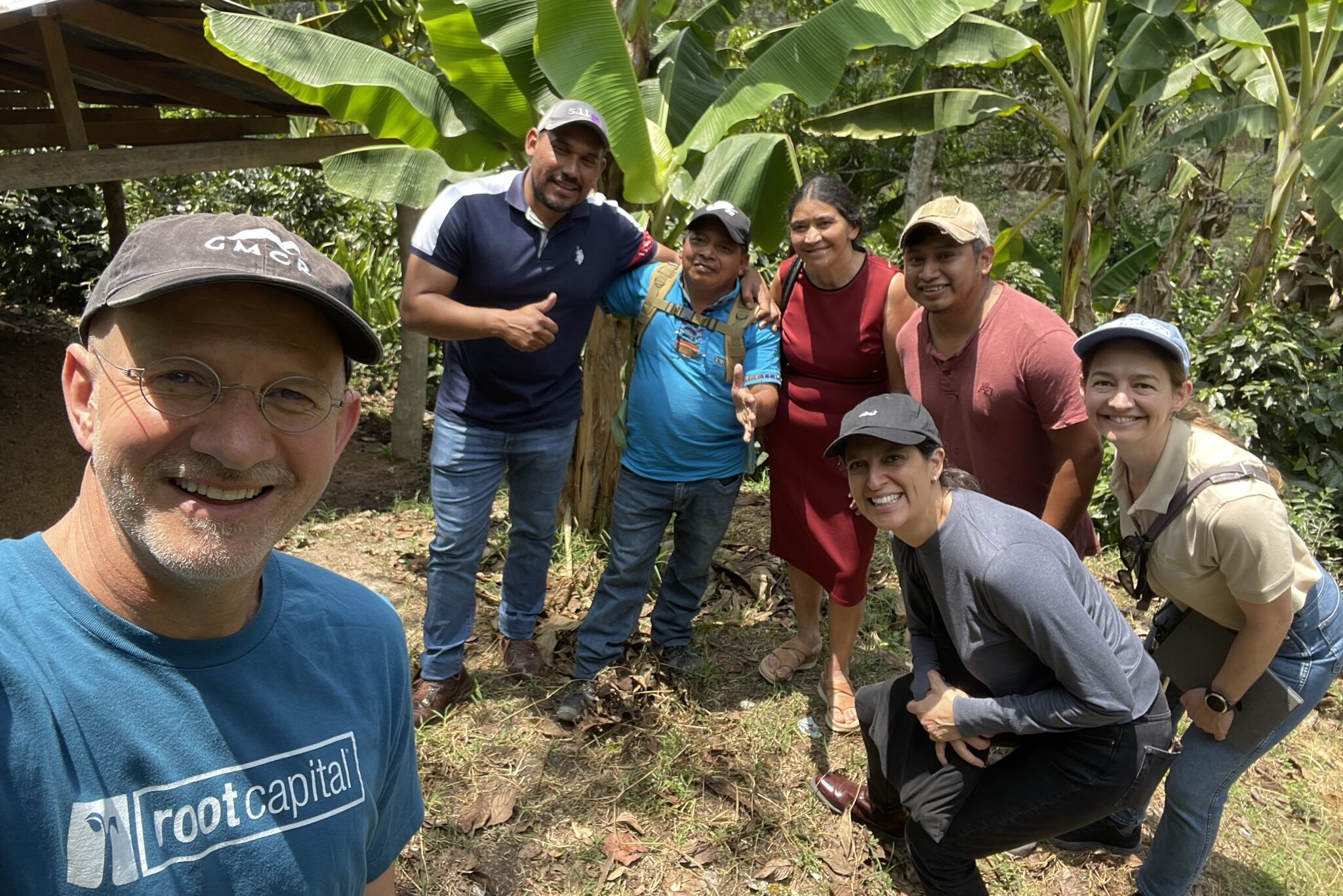
IN PHOTOS: How Small Businesses Are Driving Rural Prosperity and Tackling Climate Change in Honduras
In March, I went on my fourth trip with Root Capital—one very near and dear to my heart because it was to my home country: Honduras. As someone who was born and grew up there—and who has since spent a career working to address the challenges of poverty, climate change, and migration in this region and beyond—it was very meaningful to once again be amid the verdant farms and vibrant communities at the heart of this work…
Date:
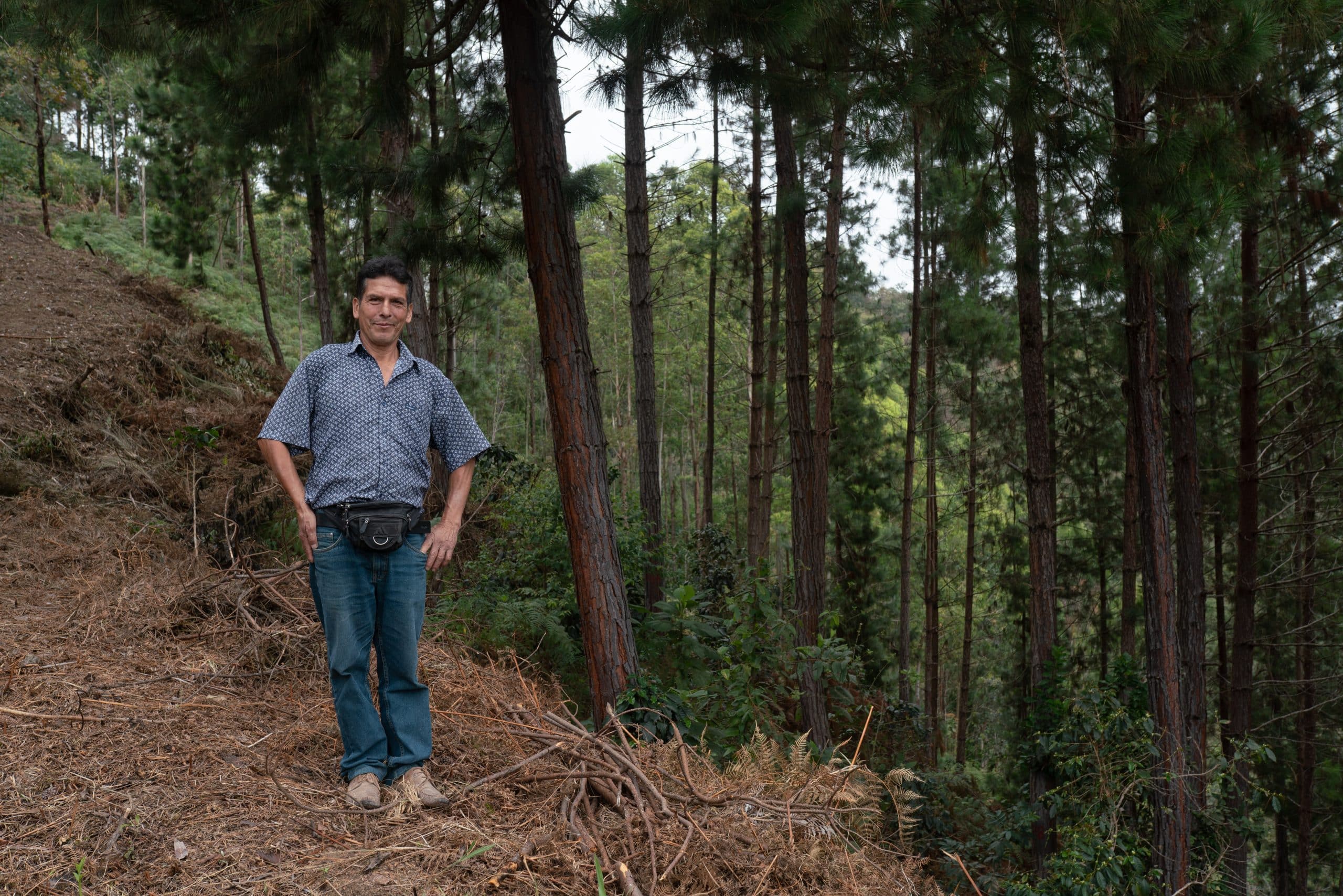
Carbon, Climate, and Coffee: Paying Farmers for Their Efforts to Combat Climate Change
CENFROCAFE producer member Anselmo Díaz on his coffee farm. Rumi Bamba, Las Pirias, Jaen, Cajamarca, Peru.
Date:
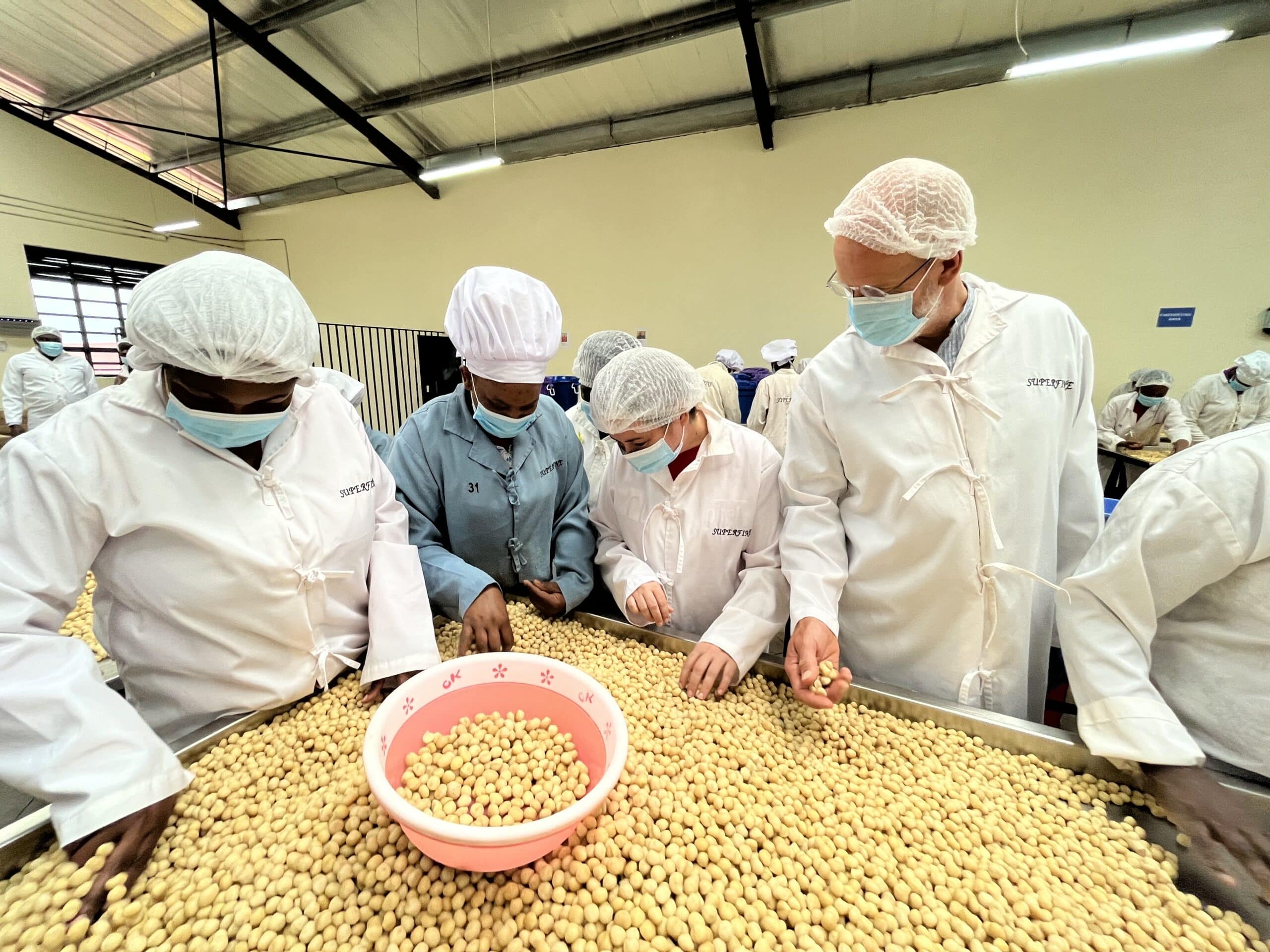
A Journey Into the Heart of Kenya’s Macadamia-Processing Region
Superfine Africa Nuts employees sort macadamia nuts by hand alongside Root Capital’s Leonor Gutiérrez, Director of
Date:


